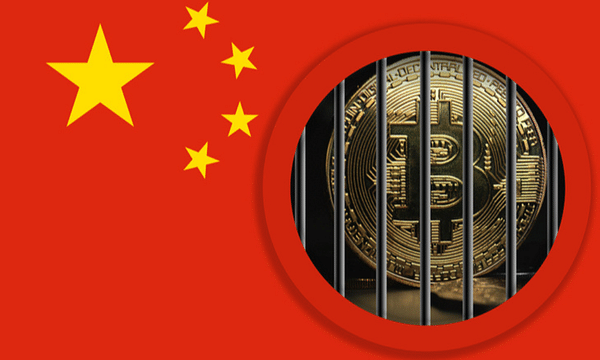Charlie Munger calls on the US government to follow in China's footsteps and ban all cryptocurrencies
Charlie Munger is one of the biggest skeptics of cryptocurrencies, and he regularly makes that known. This time he tried to call on the government to finally crack down on cryptocurrencies and follow in China's footsteps in this regard.

Charlie Munger, the vice chairman of Berkshire Hathaway, dislikes cryptocurrencies for many reasons. He often talks about gambling, lack of regulation, impracticality, lack of fundamentals and more in connection with cryptocurrencies.
Munger and his business partner Warren Buffett are longtime skeptics of cryptocurrencies, arguing that they are not tangible or productive assets. In recent years, Munger says, private companies have issued thousands of new cryptocurrencies that have been sold to promoters for ''nothing'' and then bought by the public at higher prices without fully understanding the ''predilution in favor of promoters.'' That's why Munger is calling for a new federal law to ban cryptocurrencies, as China has done.
Charlie Munger, vice chairman of Berkshire Hathaway, has called on the U.S. government to ban cryptocurrencies along the lines of China, arguing that the lack of regulation allows these gambles to continue.
"Cryptocurrency is not money, it's not a commodity, it's not even a security," Munger, 99, said in an op-ed published in The Wall Street Journal.
"Instead, it's a 'contract' of gambling," Munger said.
"Clearly, the U.S. should now pass a new federal law to prevent this from happening."
Munger's latest comments come after a challenging year in 2022, when the crypto market was repeatedly crippled and plagued by problems ranging from failed projects to a lack of liquidity, exacerbated by the collapse of the FTX, once one of the world's largest exchanges.
Munger cited two "interesting precedents" that may lead the U.S. to healthy action. First, China has strictly banned services offering trading, order matching, token issuance and derivatives for virtual currencies. Second, since the early 17th century, the English Parliament has banned all public trading of new certificates and kept that ban in place for about 100 years, Munger said.
"What should America do when the cryptocurrency ban is implemented? Well, one more action might make sense: Thank the Chinese Communist leader for his sterling example of unsound judgment," Munger said.
How does that even work in China?

China started being restrictive towards the blockchain sector in 2021 when it announced extreme restrictions on $BTCUSD mining and cryptocurrency trading. It rolled out the ban in phases and by the end of September 2021, the government halted all crypto transactions. Within months, Bitcoin's hashing speed dropped and Chinese cryptocurrencies left the country.
- Currently, anyone working for a Chinese tech firm associated with cryptocurrencies can face jail time.
What does China's cryptocurrency ban involve?
China's cryptocurrency ban focuses on the following three areas of dealing with digital assets:
- Bitcoin mining: After China banned BTC mining, it became illegal for Chinese residents and businesses to mine PoW cryptocurrencies.
- Cryptocurrency trading and transactions: Chinese investors are not allowed to buy, send or trade in digital currencies such as Bitcoin or Ethereum. There are also many policies against trading digital collectibles such as NFTs.
- Employment in the crypto sector: the Chinese government discourages innovation in its crypto sector. If any tech companies or entrepreneurs are involved in cryptocurrencies, they can face significant fines and jail time.
Although it is illegal to use and buy cryptocurrencies, there are no specific policies against holding digital assets such as Bitcoin, Dogecoin or Ethereum. Therefore, Chinese residents who have held crypto in their wallet for an extended period of time are not in violation of any current laws.
Please note that this is not financial advice.